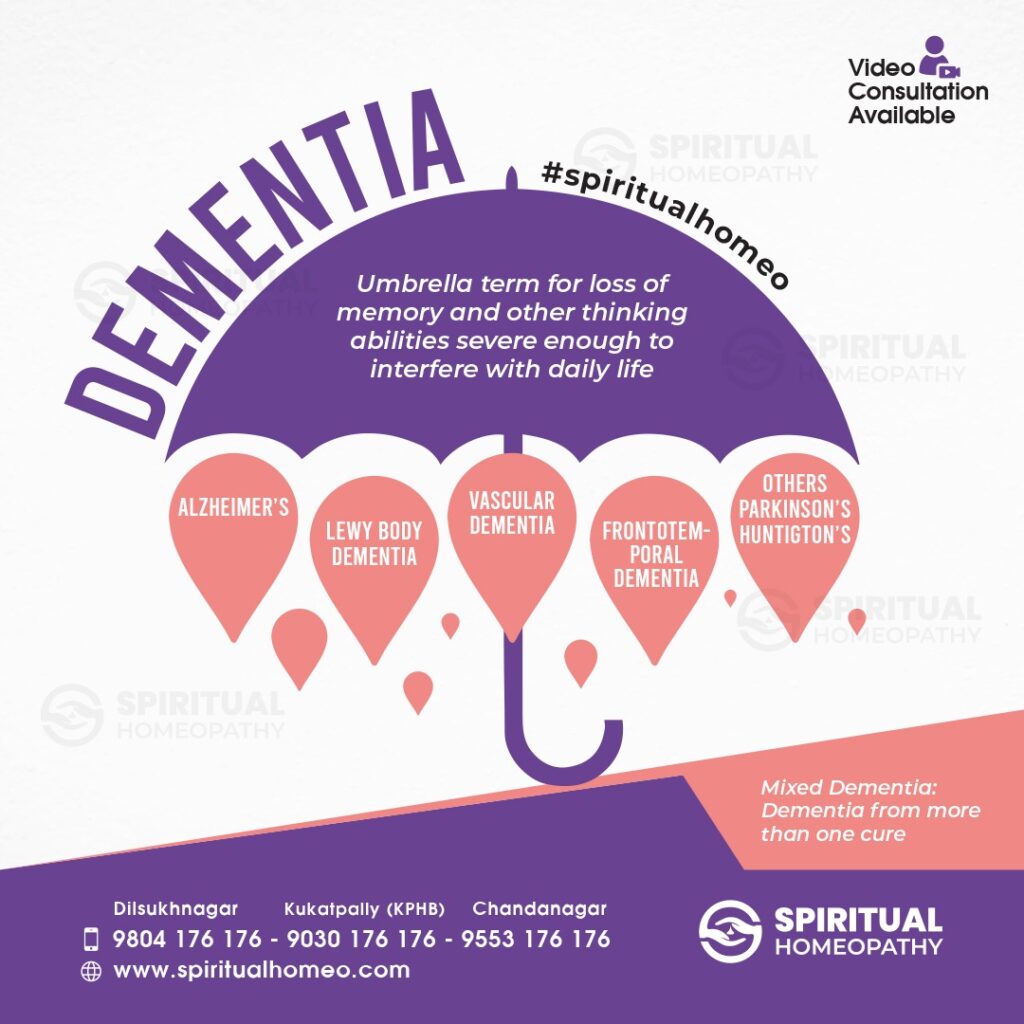Dementia is a term used to describe a group of cognitive disorders characterized by a decline in cognitive function, including memory, thinking, reasoning, and the ability to perform everyday activities. Dementia is not a specific disease but rather a syndrome with a variety of possible underlying causes. Alzheimer’s disease is the most common cause of dementia, but there are many other types and causes of dementia. Here are some key points about dementia:
-
Alzheimer’s Disease: Alzheimer’s disease is the most prevalent cause of dementia, accounting for a significant portion of dementia cases. It is characterized by the accumulation of abnormal protein deposits in the brain, leading to the gradual destruction of brain cells and cognitive decline.
-
Other Types of Dementia: There are various other types of dementia, including vascular dementia, frontotemporal dementia, Lewy body dementia, and others. Each type has distinct characteristics and may result from different underlying causes.
-
Symptoms: The symptoms of dementia can vary but often include memory loss, confusion, difficulty with language and communication, impaired judgment, changes in behavior and personality, and an inability to perform daily tasks independently.
-
Progression: Dementia is typically progressive, meaning that symptoms worsen over time. In the early stages, individuals may have mild memory problems, but as the condition advances, it can severely impact a person’s ability to function independently.
-
Diagnosis: Diagnosis of dementia involves a comprehensive assessment by a healthcare provider, which may include a medical history, cognitive assessments, imaging tests (e.g., brain scans), and blood tests to rule out other potential causes of cognitive impairment.
-
Risk Factors: Advanced age is the most significant risk factor for dementia, but other factors such as genetics, family history, cardiovascular health, and lifestyle choices (e.g., smoking, poor diet, lack of exercise) can also play a role in its development.
-
Treatment: Homeopathic medications and interventions can help manage symptoms, slow the progression of the disease, and improve quality of life. Supportive care and interventions to address specific symptoms and needs are also essential.
-
Caregiving: Dementia often requires significant caregiving support. Family members and caregivers may need to provide assistance with daily activities, manage medications, and ensure the safety and well-being of the individual with dementia.
-
Research and Awareness: Research into the causes, prevention, and treatment of dementia is ongoing. Increasing awareness and understanding of dementia is crucial for early diagnosis, access to care, and support for individuals and their families.
It’s important to note that not all memory problems are indicative of dementia, as some cognitive changes can be a normal part of aging or may result from reversible conditions such as depression, medication side effects, or vitamin deficiencies. If you or someone you know is experiencing cognitive changes or memory problems, it is essential to seek medical evaluation for an accurate diagnosis and appropriate care. Early intervention and support can have a significant impact on the management of dementia and the overall quality of life for affected individuals and their families.




